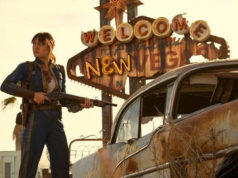All of Wes Anderson’s movies are children’s movies. That’s what I realized while watching his Moonrise Kingdom, a spellbinding piece of work that opens in Fort Worth this week. You’d think his 2009 animated film, Fantastic Mr. Fox, would have clicked that into place for me. But no, it took me until now to figure this out — the grown-up characters in his previous films tend to be either precocious kids stunted in adulthood (the fabulous The Royal Tenenbaums) or still pursuing childhood dreams (the dispiriting The Life Aquatic). In Moonrise Kingdom, Anderson trains his miniaturist imagination and formidable style on characters who are actually kids and achieves wondrous results. I don’t know if this luminescent fable is the best Wes Anderson movie ever. I just know it’s one of my favorites.
The story takes place in early September 1965 on a fictitious island off the East Coast. Our 12-year-old heroes are Sam Shakusky (Jared Gilman), an orphaned, picked-on member of a Boy Scouts-like organization, and Suzy Bishop (Kara Hayward), surely the angriest, most violent-tempered girl ever to wear an all-pink wardrobe and azure eye shadow. Deeply in love, they run off together to live in the woods, sparking a massive childhunt involving a melancholic police chief (Bruce Willis), Suzy’s burned-out lawyer parents (Bill Murray and Frances McDormand), and Sam’s overwhelmed troop leader (Edward Norton). The search is more urgent than anyone knows, because the island is about to be mauled by the worst storm in 50 years, as we’re informed early on by a babbling onscreen narrator (Bob Balaban) who’s dressed like a Christmas elf.
Visually, this is the most Wes Anderson of any Wes Anderson movie. Despite the wildness of the natural setting and the frequently chaotic action, every shot is scrupulously composed. When the camera tracks, it always moves in a perfectly straight line up, down, forward, backward, or to the side. When the camera swivels, it’s always in a neat 90-degree quarter-circle. Along with this comes the typical Anderson visual vocabulary of overhead shots and cameras placed directly in front of the actors. The extreme rigor of Anderson’s approach makes the proceedings more fable-like (check the blatantly unreal shot of the troop leader leaping over a flooded ravine) and keeps things from becoming too syrupy or self-consciously “magical.”
All this technique would mean little if we weren’t invested in the characters, but happily enough, we do care about Sam and Suzy. (By the way, their names are the same as the lovers in Captain & Tennille’s “Muskrat Love,” which can’t be a coincidence.) One reason why they’re so endearing is that they take their wilderness adventure so matter-of-factly: Suzy never complains about the inclement weather (which she’s emphatically not dressed for), and Sam never complains about having to haul her luggage (suitcases packed with thick, hard-cover fantasy novels). The two actors, both making their screen debuts, adopt the deadpan style typical of actors in Anderson films. If Heyward makes a bigger impression than Gilman, that might be because the mercurial Suzy is a flashier role than the larval Sam. Very little fazes these kids, and not even the prospect of death makes them lose their composure.
This threatens to turn them into affectless moppets instead of people, but Anderson and co-writer Roman Coppola do give us these characters’ deeper emotions. They just do it obliquely, as in a great flashback montage when we see the hellish moments of the children’s lives but only hear Alexandre Desplat’s dispassionate orchestral music and the coolly wise openings of Sam and Suzy’s letters to each other. As we watch Suzy scream at her own parents, we hear her calm voiceover: “Dear Sam, I think you should think about your parents every day, even if it makes you sad.”
Anderson gives us plenty else to marvel at: his flair for visual gags; the musical selections from Benjamin Britten, Hank Williams, and Françoise Hardy; the unlikely but natural fit between Willis’ gentle sadness and the filmmaker’s milieu. Yet all these are secondary to the delicate love story that Anderson crafts here, one that culminates in a scene when Sam and Suzy dance around in their underwear by the sea. The point isn’t that the kids reckon with their sexuality here, although Anderson’s movie is notably more honest than most on the subject of 13-year-olds and their sexual feelings. Rather, it’s that Sam and Suzy fulfill the need we all have to carve out a space in the world where we can be ourselves and to find someone to share that space with. Their love turns an unnamed inlet that’s reachable only by a hard journey into a paradise of their own creation. For us as much as it is for them, it is a place of joyous beauty.
[box_info]
Moonrise Kingdom
Starring Jared Gilman and Kara Hayward. Directed by Wes Anderson. Written by Wes Anderson and Roman Coppola. Rated PG-13.
[/box_info]













I truly liked this Wes Anderson film too. He often writes about children who live in, or who have grown up in, rather magical worlds – children who have been given much, but whose parents are distant in some ways. There is a little Royal Tenenbaums and a little Bottle Rocket in this one. I would definitely go see it again. It was lovely on the big screen. Anderson’s use of music is brilliant. His ability to take us from the ridiculous to that which is deeply felt is most effective.